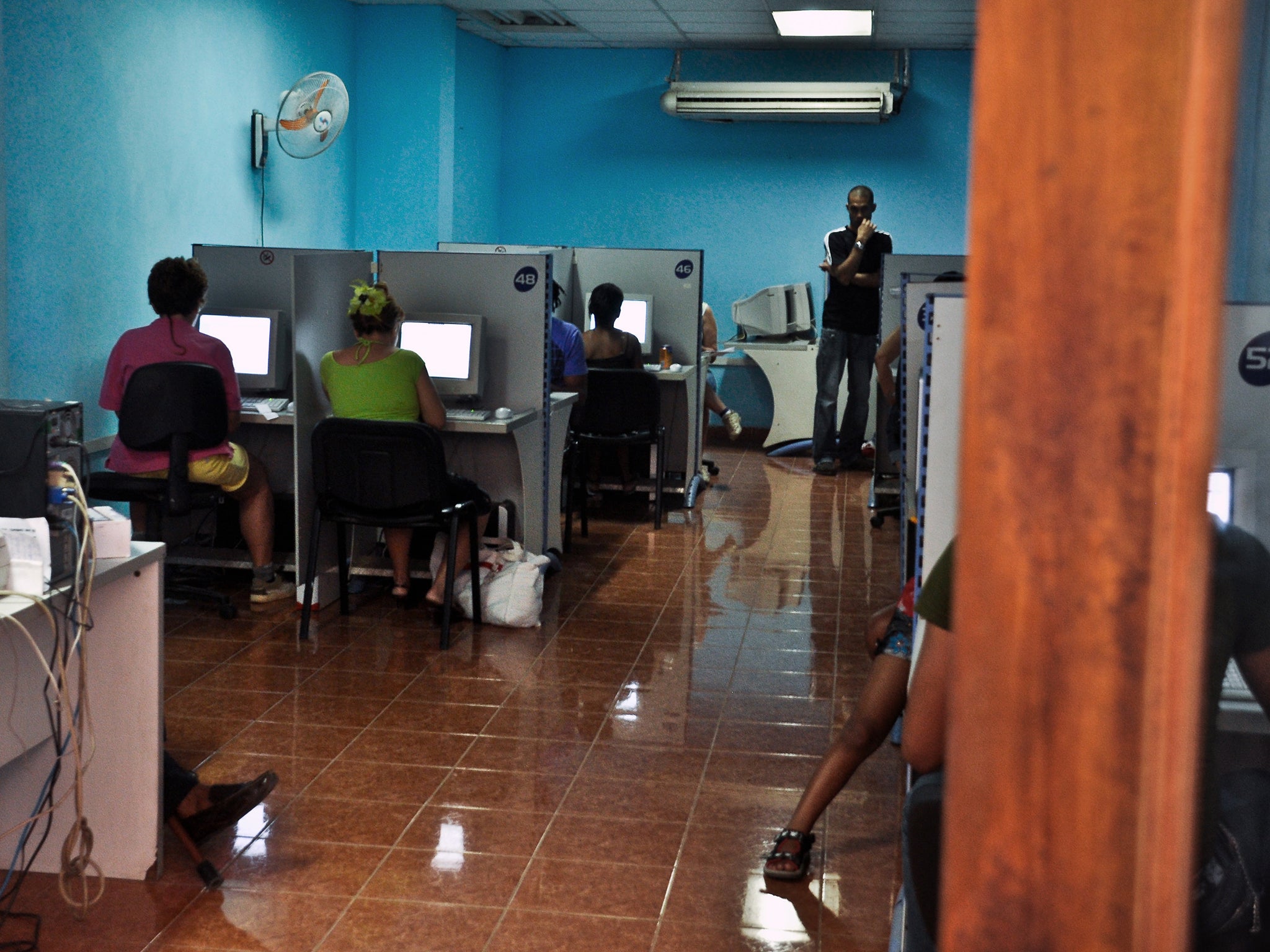Cuba's internet revolution: Government plans to expand wi-fi access and reduce price of going online
Until now, the only network has been at tourist hotels at hourly prices that represent nearly a quarter of the average monthly salary

Your support helps us to tell the story
From reproductive rights to climate change to Big Tech, The Independent is on the ground when the story is developing. Whether it's investigating the financials of Elon Musk's pro-Trump PAC or producing our latest documentary, 'The A Word', which shines a light on the American women fighting for reproductive rights, we know how important it is to parse out the facts from the messaging.
At such a critical moment in US history, we need reporters on the ground. Your donation allows us to keep sending journalists to speak to both sides of the story.
The Independent is trusted by Americans across the entire political spectrum. And unlike many other quality news outlets, we choose not to lock Americans out of our reporting and analysis with paywalls. We believe quality journalism should be available to everyone, paid for by those who can afford it.
Your support makes all the difference.Cuba says it’s expanding internet access by adding wi-fi capacity to dozens of state-run internet centres and more than halving the cost that users pay for an hour online.
The announcement, published in Juventud Rebelde, is the first significant expansion of the internet in Cuba since US President Barack Obama said that the communist government had told him it would give its people more access as part of a historic detente between the Cold War enemies. The spokesman for Cuba’s state communications company told the newspaper that 35 government computer centres around the country would have wi-fi starting next month, and the price of one hour online would drop to $2 (£1.25) from $4.50 (£2.80).
That price remains unaffordable for most Cubans but the change would represent a significant improvement in access for many people. Home internet remains illegal for most Cubans and online access at offices with internet is highly limited and controlled. Until now, the only wi-fi network has been at tourist hotels at hourly prices that represent nearly a quarter of the average monthly salary.
“The internet space is opening up. This is a significant step,” said Norges Rodriguez, a blogger and telecommunications engineer in Havana. “A year or two ago, we didn’t have anything like this.”
Critics say Cuba’s lack of connectivity is due largely to its fear that the internet will catalyse social unrest. The government blames the US embargo on the island and has publicly expressed its intention to expand citizens.
There have been hints of the government following through slowly on that promise in recent months. The state communications monopoly, ETECSA, has experimented with a temporary price cut to $2, and the artist Kcho garnered much attention by opening a free, government-sanctioned wi-fi connection for the public at his arts centre.
The latest iPhone, however, is a surprisingly common sight in Havana.
AP
Join our commenting forum
Join thought-provoking conversations, follow other Independent readers and see their replies
Comments